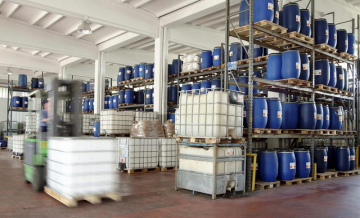What is a Process Safety Management Program?
A Process Safety Management (PSM) program is a comprehensive set of practices and procedures designed to prevent and mitigate the risks associated with potentially hazardous processes in industries such as chemical manufacturing, oil refining, and others where large quantities of hazardous materials are handled. The primary goal of a PSM program is to ensure the safety of personnel, protect the environment, and prevent property damage by managing the risks inherent in these processes.
Who is Required to have a Process Safety Management Program?
In the United States, the requirement for having a Process Safety Management (PSM) program falls under the jurisdiction of the Occupational Safety and Health Administration (OSHA), specifically under its Process Safety Management of Highly Hazardous Chemicals standard (29 CFR 1910.119). This standard applies to any employer who processes, handles, stores, or uses highly hazardous chemicals in quantities specified by the regulation.
Is Employee Participation Important?
Employee participation is essential for creating a culture of safety, promoting active engagement in safety initiatives, and ultimately, reducing the likelihood of accidents and incidents in workplaces covered by Process Safety Management programs.
Why is PSM Needed?
Process Safety Management is essential for safeguarding personnel, protecting the environment, preserving assets, ensuring regulatory compliance, managing risks, and promoting a culture of safety in organizations handling highly hazardous chemicals.
Is PSM a Legal Requirement?
Yes, in many jurisdictions, PSM is a legal requirement for industries that handle highly hazardous chemicals. Regulatory agencies such as OSHA in the United States and similar agencies in other countries have established standards and regulations that mandate the implementation of PSM programs.
In the United States, for example, OSHA's Process Safety Management of Highly Hazardous Chemicals standard (29 CFR 1910.119) requires employers to develop and implement a comprehensive PSM program for processes involving certain quantities of highly hazardous chemicals. The standard outlines specific requirements for process safety information, process hazard analysis, operating procedures, training, mechanical integrity, management of change, pre-startup safety review, emergency planning and response, incident investigation, and auditing.
Failure to comply with PSM regulations can result in serious consequences, including fines, penalties, legal liabilities, and potential shutdown of operations. Therefore, it is essential for organizations in industries covered by PSM regulations to ensure full compliance with the applicable standards and regulations to protect the safety of their employees, the surrounding community, and the environment.






